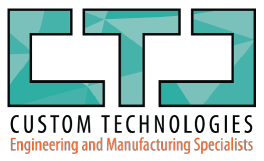For years, researchers have tried to estimate the impact of advancing automation technology on the manufacturing sector and how its workers will be affected.
While some fear that automation will cause more job loss than opportunity, others are adamant that advancements in automation technology will create more high-paying jobs and opportunities for workers to learn new skills and advance their careers.
Keep reading to learn more about how automation in manufacturing can promote more jobs.
Remembering History
Throughout history, people have had to either accept or reject advancements in manufacturing:
- 16th Century
A clergyman, William Lee, adapted looms used to make rugs to make a long sheet of stocking material. This created a much quicker and cheaper method of making stockings.
According to legend, Queen Elizabeth I rejected Lee’s request for a patent on his machine because she feared for the welfare of stocking workers who would be pushed out of a job.
Yet, Lee’s invention became the basis for other textile machine developments seen throughout history.
- 19th Century
Artisan workers faced more significant changes as the Industrial Revolution gained traction. In response to the adoption of steam-powered machines in mills and factories, people quickly began moving from their rural communities to new cities where they could work to quickly produce goods previously hand-crafted by artisan workers.
The growing population within urban areas placed more pressure on farmers to embrace machinery that increased efficiency and product output.
In response to the increased use of automation, a UK movement known as the Luddites rioted, smashed machines, and set fire to business owners’ homes.
- 20th Century
In 1913, Henry Ford implemented the moving assembly line at his Highland Park assembly plant, allowing the Model T to be built in only 90 minutes.
At first, employees began leaving to work with competitors, as they claimed the moving assembly line was too difficult to work with. However, Ford had some tricks up his sleeve.
He increased pay to $5 a day, almost double what his workers had been earning before. He also made workdays shorter, cutting one hour off each shift. This allowed him to schedule a third shift and hire more employees, officially making the Ford Motor Company a 24-hour operation.
The moving assembly line also made the Model T more affordable, allowing employees to enjoy the product they built.
Manufacturing Today
Automation isn’t going anywhere. It’s time that people embrace it and invest in the proper programs to ensure working individuals are prepared to take on higher-paying jobs that require a more honed and specific skillset.
Companies shouldn’t lay off employees that no longer fit the skillset needed to operate and maintain machinery. Investing in learning and development programs for current employees provides growth opportunities for them and will make them more loyal to their organization.
The National Association of Manufacturers estimates that by 2028 the manufacturing industry will need to fill 4.6 million jobs. Instead of hoping the right candidates will come along, companies can ensure they’ll have a prepared workforce by training those already familiar with their business and industry.
With evolving technology comes evolving lifestyles and skillsets that suit processes that run on a larger yet more efficient scale. As technology continues to improve, automation will only become more and more commonplace in our lives. Instead of fighting it, we should embrace it and prepare current and future workers for these changes.
Custom Technologies
Located in the heart of the United States, Custom Technologies is passionate about integrating automation with manufacturing. New automation technologies will allow companies like us and others to efficiently increase production closer to the end user while providing more well-paying jobs for local communities. By investing in the education and training of existing and future workers, we can truly use automation in the manufacturing sector to its fullest potential.
The more we embrace automation, the more opportunity there is to expand business potential, grow the economy, and improve the lives of millions of working Americans.
We know that technological transition periods can be uncomfortable. When has change ever been easy? But we are resilient, intelligent, capable human beings, and we’ve proven time and time again that we can grow with the times.
For 25 years, Custom Technologies has designed, built, and installed custom automation machinery and turnkey automation solutions, and we can’t wait to see what the future holds.
If you have any inquiries about our services, please contact us, and a team member will get in touch with you as soon as possible!


